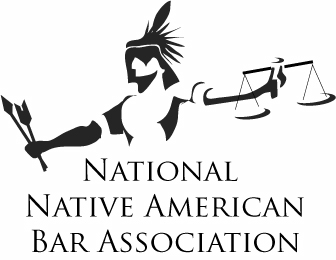New Study on the Experiences of Native American Women Attorneys
The National Native American Bar Association (NNABA) collaborated with the ABA Commission on Women in the Profession (Commission) to publish the study report, “Excluded & Alone: Examining the Experiences of Native American Women in the Law and a Path Towards Equity.” The report documents the stories of Native American women attorneys’ experiences navigating their pursuit of a legal education and their careers in the legal profession. NNABA is grateful to the Native American women who generously shared their experiences, and to the Firekeepers Circle, an advisory council comprised of NNABA and American Bar Association (ABA) representatives, including Native American attorneys, focused on ensuring solution-focused recommendations resulting from the study.
This study is the first national study known of Native American women attorneys, and only the second study dedicated to Native American attorneys. The first study was published in 2015 by NNABA. ABA President Mary Smith (Cherokee), the first Native American to lead in this role and Past NNABA President when the 2015 study published, remarked in the new study that, “this research builds on the 2015 NNABA study, delving deeper into the unique experiences of Native American women who navigate the intersection of tribal identity, race, and gender in the legal profession. This study also explores the generational perspectives of Native American women and illustrates that, while progress in advancing Native American women in the legal profession is evident, it proceeds at a glacial pace.”
The release of the report coincided with President Smith’s Presidential Speaker Series webinar with Deb Haaland, U.S. Secretary of the Interior, and a panel of other Native American women “firsts” including Abby Abinanti (Yurok), Chief Judge, Yurok Tribe and First Native American Woman to pass the California Bar Exam; Kimberly TeeHee (Cherokee),first Delegate-designate to the U.S. House of Representatives from the Cherokee Nation and former senior policy advisor for Native American affairs in the White House; Stacy Leeds (Cherokee), Willard H. Pedrick Dean and Regents Professor of Law, Sandra Day O’Connor College of Law, and first Native American woman to serve as a law school dean; and Valerie Nurr’araluk Davidson (Yup’ik), President/CEO of the Alaska Native Tribal Health Consortium; interviewed by Makalika Naholowa’a (Native Hawaiian), NNABA President, who is the first Native Hawaiian to lead the NNABA.
President Naholowa’a states in the report: “[W]e must recognize that as a profession, we thrive only when all voices are heard and valued. Native American women in the legal profession bring unique perspectives, strengths, and resilience that enrich the tapestry of our field. It is our collective responsibility to ensure that Native American women are not alone in their journey. By listening to the stories of Native American women, we are all better prepared to support them as our colleagues at the bar and important members of the profession that we critically need.”
Recommendations from the research include:
- Do not relegate Native American women to meaningless footnotes in research studies.
- Continue to support and expand pre-law programs to encourage Native Americans to consider and get admitted into law school.
- Train law school faculty and administration on the needs of Native American students, especially Native American women.
- Ensure inclusive mental health support services for Native American students in law schools.
- Improve data collection and communication on where Native American lawyers are working and how they advance within various workplaces.
- Integrate information about inclusion of Native Americans into all diversity, equity, and inclusion trainings conducted by bar associations, judicial organizations, and other groups.
- Create cross-generational mentoring circles for Native American women that cut across geographical boundaries and practice areas.
.
To view the full report, go to www.ambar.org/nativewomen
Founded in 1973, NNABA serves as the national association for American Indian, Alaska Native, and Native Hawaiian attorneys, judges, law professors and law students. NNABA strives for justice and effective legal representation for all American indigenous peoples; fosters the development of Native American lawyers and judges; and addresses social, cultural, and legal issues affecting American Indians, Alaska Natives, and Native Hawaiians.

Advancing Justice for Native Americans
Join NNABA Now!
Benefits of being a NNABA member include weekly access to a variety of new, nationwide job announcements by email and on this site. To join, click here.
Follow Us on Social Media
Stay up-to-date, and receive important information from the NNABA

